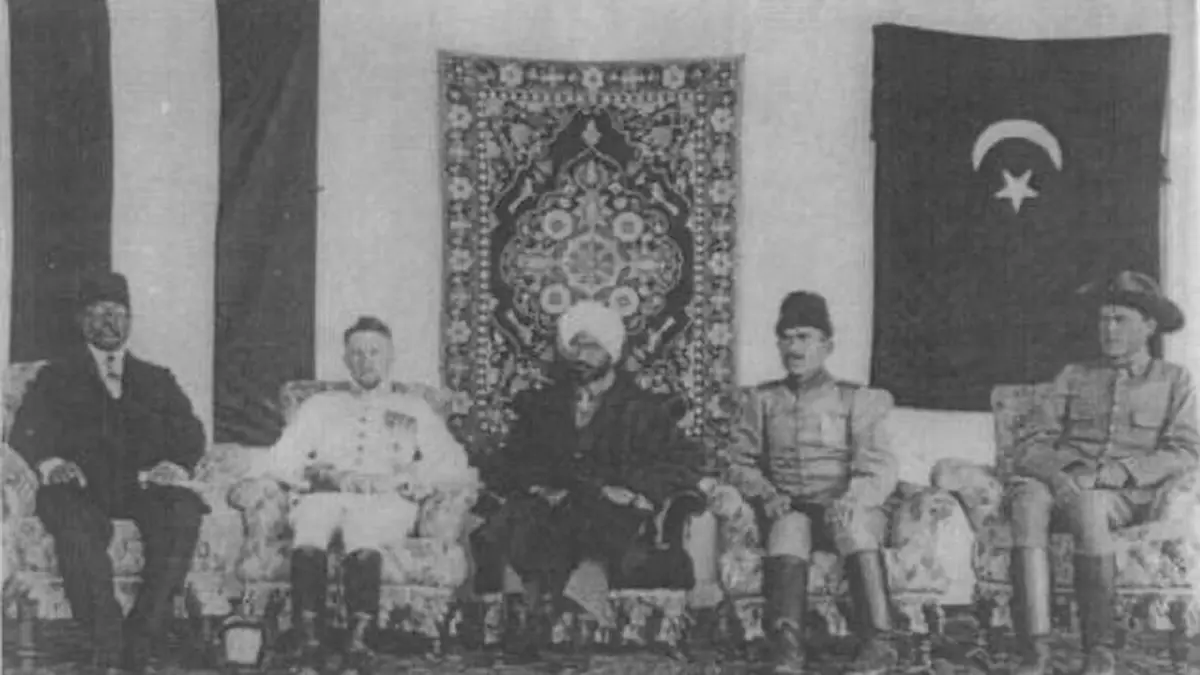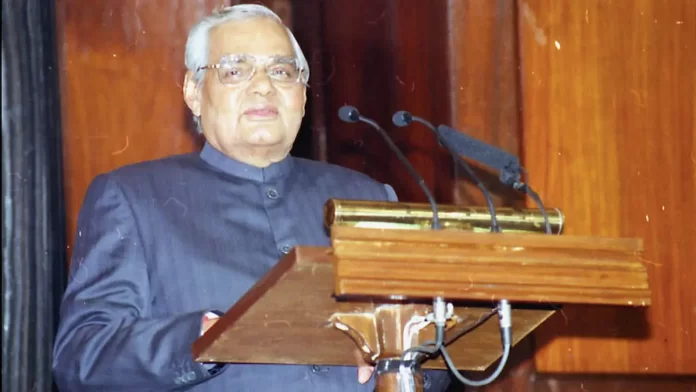In the annals of India’s political history, few figures have left an indelible mark as deep as Atal Bihari Vajpayee. Revered as a statesman, poet, and orator par excellence, Vajpayee’s life and contributions have been examined from various angles.
However, beyond the well-documented facets of his journey lies a trove of untold stories that offer a more intimate insight into his character and ideologies.
In this exploration, we delve into the subaltern perspectives on Atal Bihari Vajpayee’s life, shedding light on lesser-known aspects that shaped his persona and convictions.
From his early years to his transformative role in shaping India’s political landscape, this article seeks to uncover the layers of complexity that defined Vajpayee, as narrated through the voices often relegated to the periphery of historical discourse.
Family Background
Atal Bihari Vajpayee was born into a privileged Hindu Brahmin family on 25 December 1924 in Gwalior, Madhya Pradesh.
His father was a headmaster in the Anglo-Vernacular Middle (AVM) School in Barnagar, Ujjain district.
His grandfather, Shyam Lal Vajpayee, had migrated to Morena near Gwalior from his ancestral village of Bateshwar in the Agra district of Uttar Pradesh.
Schools and colleges he attended include Gwalior’s Victoria College, Agra University, DAV College, Kanpur, etc.
Personal Life
Vajpayee remained a bachelor for his entire life. He adopted and raised Namita Bhattacharya as his own child, the daughter of longtime friend Rajkumari Kaul and her husband BN. Kaul (Kashmiri Brahmins).
Consumed Meat and Alcohol
Unlike purist North Indian Brahmins who shun meat and alcohol, Vajpayee was known to be fond of whisky and meat as per a New York Times article.
Worked for Arya Samaj and RSS
At an early age Atal Bihari Vajpayee joined the Arya Samaj and Rashtriya Swayamsevak Sangh (RSS).
For the unversed, both these organizations were founded and run by high class Brahmins from Gujarat and Majarashtra and worked for the revival of Hindu-Brahmin glory and dominance in India.
He also attended the Officers Training Camp of the RSS during 1940 to 1944, becoming a pracharak (RSS terminology for a full-time worker) in 1947.
In 1951, Vajpayee was tasked by RSS to work for the newly formed Bharatiya Jana Sangh, a Hindu right-wing political party associated with the RSS.
When he Lost Election to Raja Mahendra Pratap
In the 1957 Indian general election, Vajpayee contested elections to the Lok Sabha, the lower house of the Indian Parliament.
However, he lost to Raja Mahendra Pratap in Mathura, but was elected from Balrampur.
It should be noted Mahendra Pratap was a prominent Jat leader and proponent of Bahujan-Muslim unity.
He served as the 1st President of the Provisional Government of Free India, which served as the Indian Government-in-exile during World War I from Kabul, Afghanistan in 1915.
It was backed by leading Muslim nations and anti-British powers of those times like Afghanistan, Turkey, Germany, Japan, etc.
He also formed the original Indian National Army (Azad Hind Fauj) in 1915 in Kabul which was supported by many Nations including Japan.

When ABVP refused to follow his order
In December 1976, Vajpayee ordered the student activists of the ABVP to tender an unconditional apology to Indira Gandhi for perpetrating violence and disorder during the national emergency.
The ABVP student leaders, however, refused to obey his order as reported by News Minute.
Nuclear Tests
In May 1998, under Vajpayee’s premiership, India conducted five underground nuclear tests in the Pokhran desert in Rajasthan, 24 years after its first nuclear test (Smiling Buddha) in 1974.
Two weeks later, Pakistan responded with its own nuclear tests making it the newest nation with declared nuclear capability.
Historic Grudge against Mahmud Ghazni
During his visit to Afghanistan, Vajpayee allegedly visited the tomb of Prithviraj Chauhan (last Hindu upper-caste ruler of Delhi) near Ghazni, the historic capital of Sultan Mahmud Ghazni.
Recalling the same later, he told that when he expressed his wish to visit Ghazni to Afghans, they were surprised as Ghazni was neither a prominent place nor any tourist spot but a small and insignificant town for Afghans.
Vajpayee said that though he could not tell them his real intention, he visited the place nonetheless.
Later, he said on record that he was shocked to find that those poor mud-dwelling, and lowly Afghan “looters” had desecrated his Golden Bird (an alleged allegory for the Brahmanical and upper-caste ruled India).
In the same speech, he also explicitly blamed the discriminatory caste system and its unjust prohibitions for the downfall of [Brahmanical] India.
Ek hi saf mein khade ho gae Mahmud wa Ayaz, na koi banda raha na koi banda nawaz
Banda-o-Sahib-o-Mohtaj-o-Ghani ek huye, teri sarkar mein pahunche toh sabhi ek huye.
Translation
When Sultan Mahmud Ghazni and his slave Ayaz stood side by side in the Mosque, it was as though no difference remained between the Emperor and the Slave.
Both the Rich and the Poor became one after entering your sublime dominion
Allama Muhammad Iqbal
